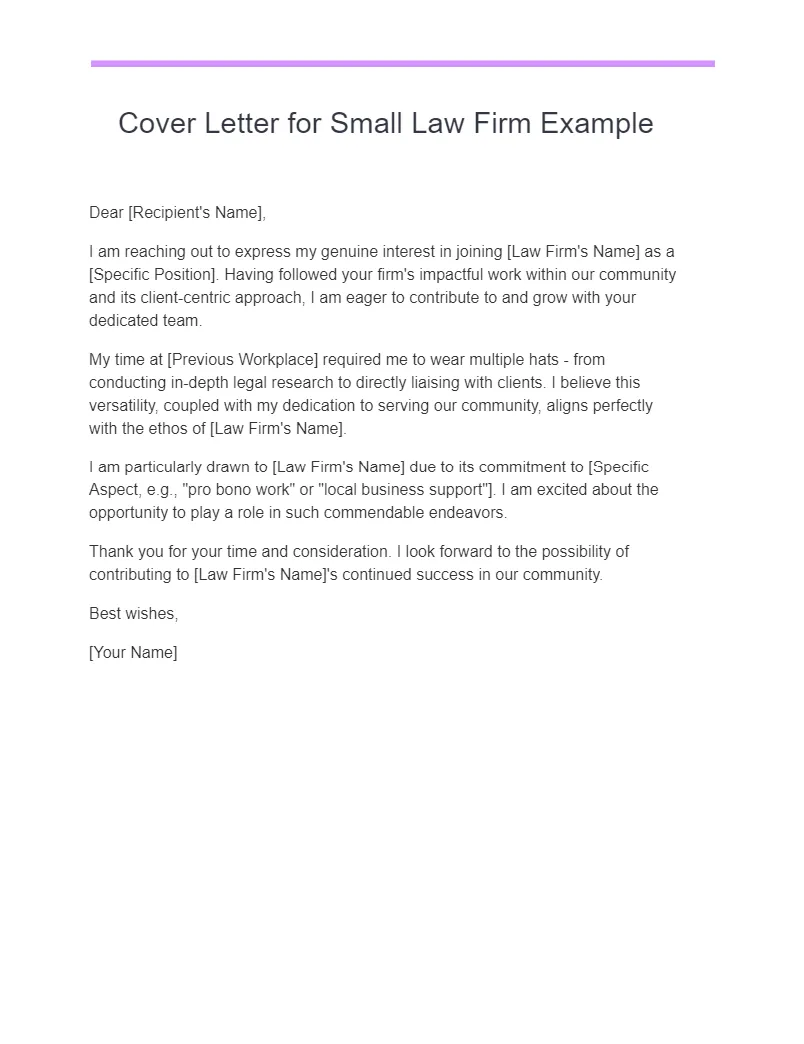What is a Cover Letter and Why is it Important?
A cover letter is a crucial document that accompanies your resume when applying for a job, particularly in the legal field. It serves as your first introduction to a potential employer, offering you the opportunity to showcase your qualifications, express your interest in the specific position, and highlight why you are the ideal candidate. Unlike a resume, which provides a factual overview of your experience and skills, a cover letter allows you to tell a compelling story about yourself and your suitability for the role. It’s a chance to demonstrate your personality, writing skills, and genuine interest in the opportunity, setting you apart from other applicants. A well-crafted cover letter is your chance to impress the hiring manager and convince them to read your resume more carefully.
The Purpose of a Cover Letter
The primary purpose of a cover letter is to persuade the hiring manager to read your resume and ultimately consider you for an interview. It allows you to expand on the information presented in your resume, providing context and demonstrating how your skills and experience align with the specific requirements of the job. A good cover letter highlights your key accomplishments, explains your motivations for applying, and showcases your understanding of the company and the legal field. Furthermore, it gives you a platform to address any potential gaps in your resume or explain career changes. It’s also an opportunity to personalize your application, demonstrating your enthusiasm and making a positive first impression.
Highlighting Your Skills and Experience
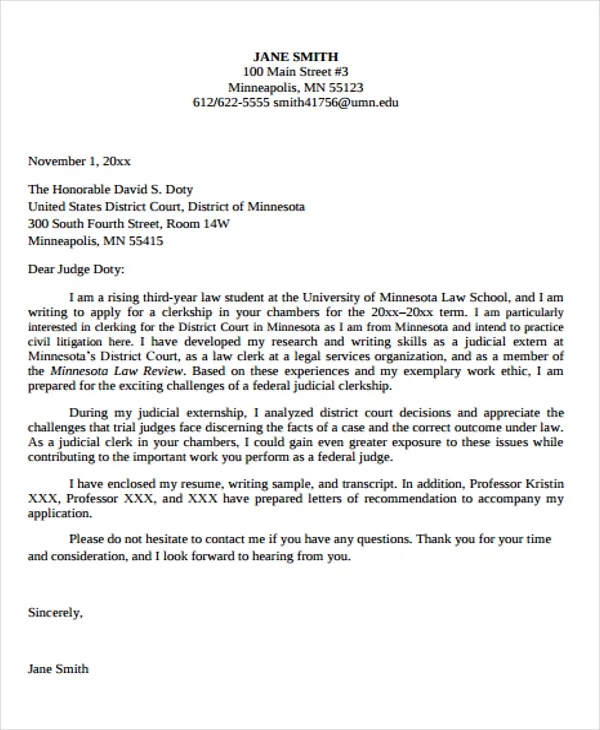
In your cover letter, you must strategically highlight your relevant skills and experience. Focus on the key qualifications mentioned in the job description and provide specific examples of how you have demonstrated those skills in the past. Use action verbs to describe your accomplishments and quantify your achievements whenever possible. For instance, instead of simply stating that you ‘assisted with legal research,’ you might say ‘Conducted in-depth legal research, resulting in a 15% reduction in research time and contributing to the successful outcome of five cases.’ This shows the hiring manager the value you bring to the table. Tailor your examples to the specific requirements of the job and make sure to align your skills with the needs of the employer, showing that you have the qualities they seek.
Key Components of a Cover Letter for Law
A strong cover letter for a legal position typically includes several essential components. These include a professional header with your contact information, a formal salutation, a concise and engaging opening paragraph, several body paragraphs that highlight your qualifications and experience, a clear closing paragraph, and a professional closing. Each section should be carefully crafted to convey your message effectively and maintain a tone of professionalism. By following a structured format and including all the necessary elements, you increase your chances of making a positive impression and successfully landing an interview. Pay attention to the length; a cover letter should be concise and typically no more than one page.
Header and Contact Information
The header of your cover letter should include your full name, address, phone number, and email address. This information should be clearly formatted and easy to read. It is essential to use a professional-looking email address; avoid using nicknames or informal email addresses. The header should also include the date and the hiring manager’s name and title, if known. If the hiring manager’s name is not available, you can use a general salutation such as ‘Dear Hiring Manager.’ Accuracy and professionalism are crucial, as this is the first information the recipient will see and will influence their first impression.
Addressing the Hiring Manager
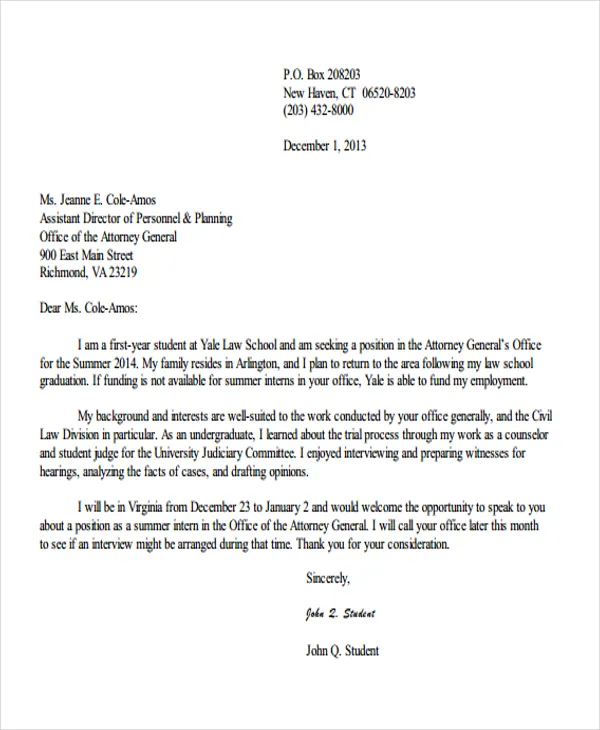
Addressing the hiring manager by name is a key step in creating a personalized cover letter. If possible, research the name of the hiring manager or the person who will be reviewing the applications. This shows that you have taken the initiative to learn about the company and the specific role. If you are unable to find the hiring manager’s name, use a professional greeting such as ‘Dear Hiring Manager’ or ‘Dear [Department Name] Hiring Team.’ Avoid generic greetings like ‘To Whom It May Concern,’ as these can make your application feel less personal and can reduce your chances of being noticed. Addressing the letter to a specific person highlights your attention to detail and your genuine interest in the position.
Opening Paragraph Hook
The opening paragraph is your chance to capture the reader’s attention and make a strong first impression. Begin with a concise statement that expresses your interest in the position and highlights why you are a good fit. You can mention where you saw the job posting and briefly explain why the opportunity appeals to you. Avoid generic openings; instead, tailor your introduction to the specific job and company. For example, mention a recent accomplishment, a skill that is particularly relevant to the role, or a specific project you worked on. The opening paragraph should be engaging and demonstrate your enthusiasm for the position while also providing a glimpse into your qualifications.
Body Paragraphs Your Qualifications
The body paragraphs of your cover letter should expand on your qualifications and experience. Use these paragraphs to showcase your skills, accomplishments, and how they align with the requirements of the job. Focus on the skills and experience mentioned in the job description and provide specific examples of how you have used those skills in previous roles. Use the STAR method (Situation, Task, Action, Result) to describe your experiences. This method helps you to provide a clear and structured explanation of your achievements. Each paragraph should address a specific aspect of your qualifications, supported by concrete examples and results. This allows you to show rather than simply tell the hiring manager why you are a good fit for the position.
Showcasing Legal Skills
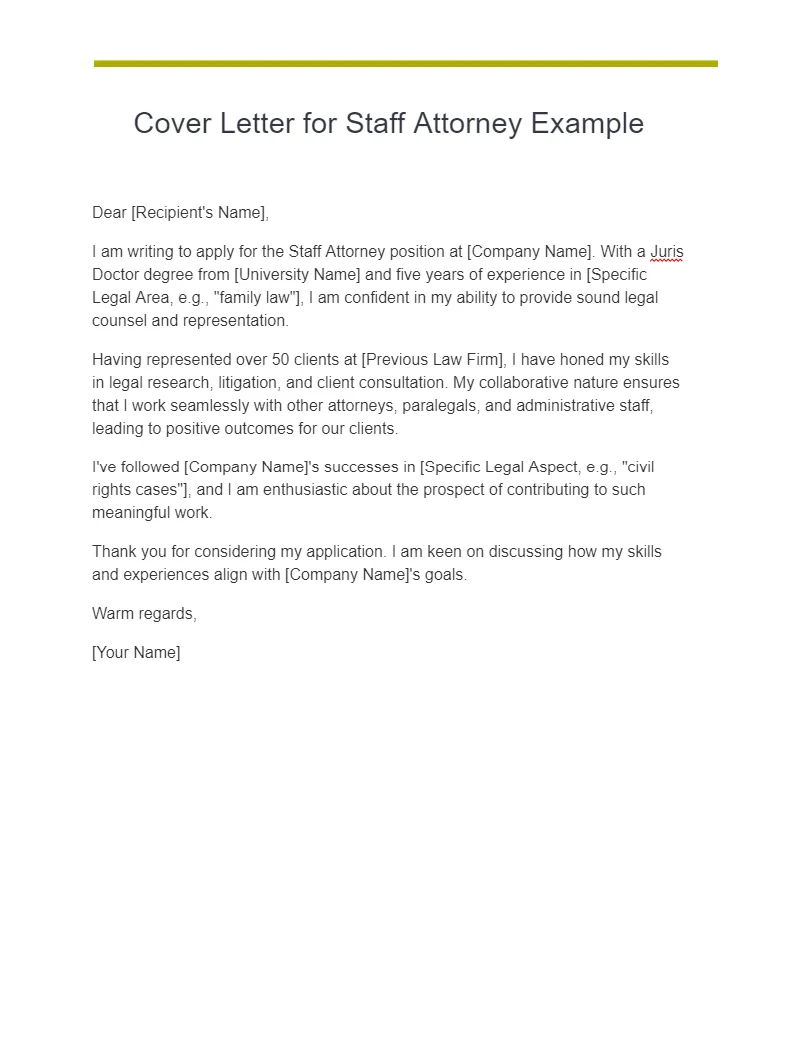
In the legal field, specific skills are highly valued. Your cover letter should highlight these legal skills, such as legal research, writing, analysis, and negotiation. Give specific examples of your experience in these areas. For instance, if you are strong in legal research, mention your experience with specific legal databases or your ability to find relevant case law efficiently. If you excel in legal writing, include examples of briefs, memos, or other legal documents you have drafted. If you have experience in negotiation, describe successful outcomes and the strategies you used. Tailor your skill descriptions to the specific requirements of the job and show the hiring manager that you are adept in the critical areas of legal practice.
Quantifying Achievements
To make your cover letter even more compelling, quantify your achievements whenever possible. Use numbers, percentages, and specific data to illustrate the impact of your work. Instead of saying you ‘improved efficiency,’ say ‘Improved case file organization, which led to a 15% reduction in document retrieval time.’ Quantifying your achievements adds credibility and demonstrates the value you brought to previous roles. This makes your accomplishments more tangible and allows the hiring manager to see the potential impact you could have in the new role. Consider the specific metrics that are most relevant to the job requirements and use them to present your qualifications effectively.
Tailoring to the Specific Job
A generic cover letter is unlikely to impress a hiring manager. Therefore, it is crucial to tailor your cover letter to the specific job and the company. Carefully review the job description and identify the key requirements and responsibilities. Then, adjust your cover letter to highlight the skills and experiences that are most relevant to the position. Research the company and its values to demonstrate your understanding of their mission and how your experience aligns with their goals. Show the hiring manager that you understand the role and are enthusiastic about contributing to the organization. This level of customization demonstrates your genuine interest and increases the chances of your application being selected.
Closing Paragraph and Call to Action
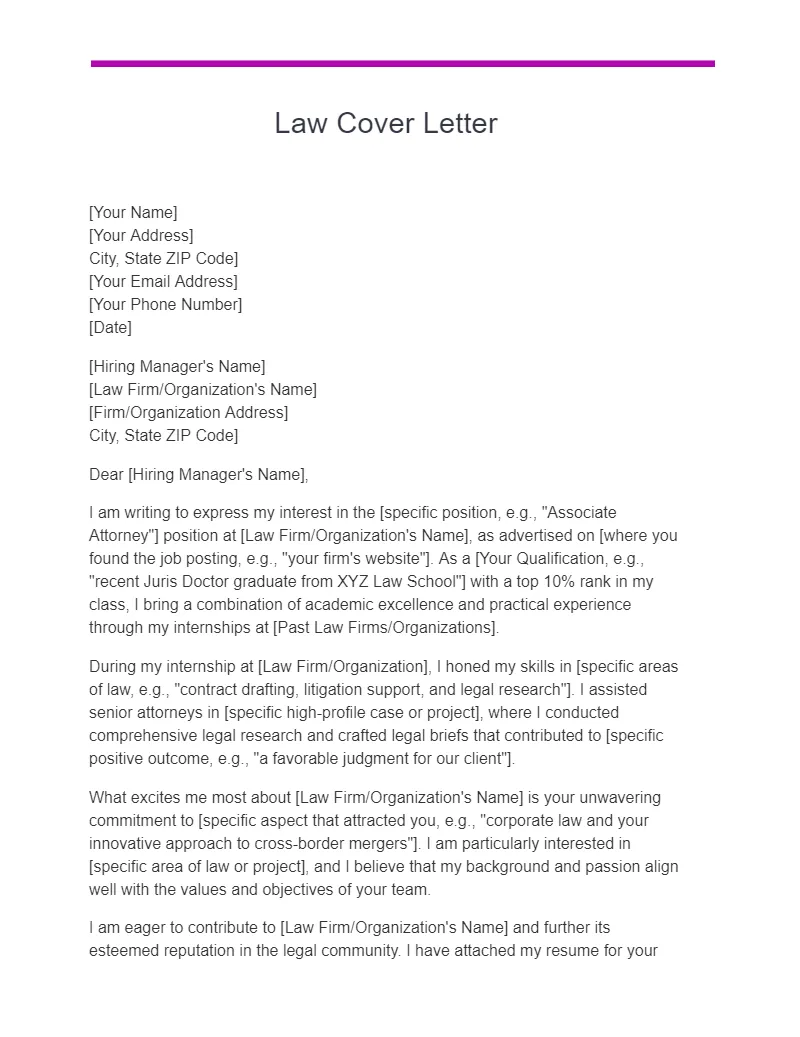
The closing paragraph should summarize your interest in the position and reiterate your qualifications. Express your enthusiasm for the opportunity and your desire to contribute to the organization. Also, include a clear call to action. State that you are available for an interview and provide your contact information if you have not already done so. Make it easy for the hiring manager to take the next step. Thank the hiring manager for their time and consideration, and express your anticipation of hearing from them soon. A strong closing paragraph leaves a lasting positive impression and encourages the reader to move forward with your application.
Expressing Enthusiasm
Throughout your cover letter, it is essential to express genuine enthusiasm for the position and the company. Show that you are genuinely excited about the opportunity and that you have a passion for the legal field. Highlight your interest in the specific area of law or the company’s mission. This can be done in your opening paragraph, body paragraphs, and closing statement. Your enthusiasm can set you apart from other applicants who might seem less engaged. Demonstrate your understanding of the company’s work and show why you want to be a part of the team. By expressing enthusiasm, you make a positive impression that can influence the hiring manager’s decision.
Requesting an Interview
A crucial aspect of your closing paragraph is to request an interview. Make it clear that you are available and eager to discuss your qualifications further. You can simply state that you ‘welcome the opportunity for an interview’ or express your interest in discussing your application in more detail. Providing your contact information makes it easy for the hiring manager to reach you. Make sure that your email and phone number are accurate and professional. Ensure you are available to respond to a call or email promptly. Explicitly requesting an interview indicates your interest and allows the hiring manager to take the next step in the hiring process.
Proofreading and Formatting
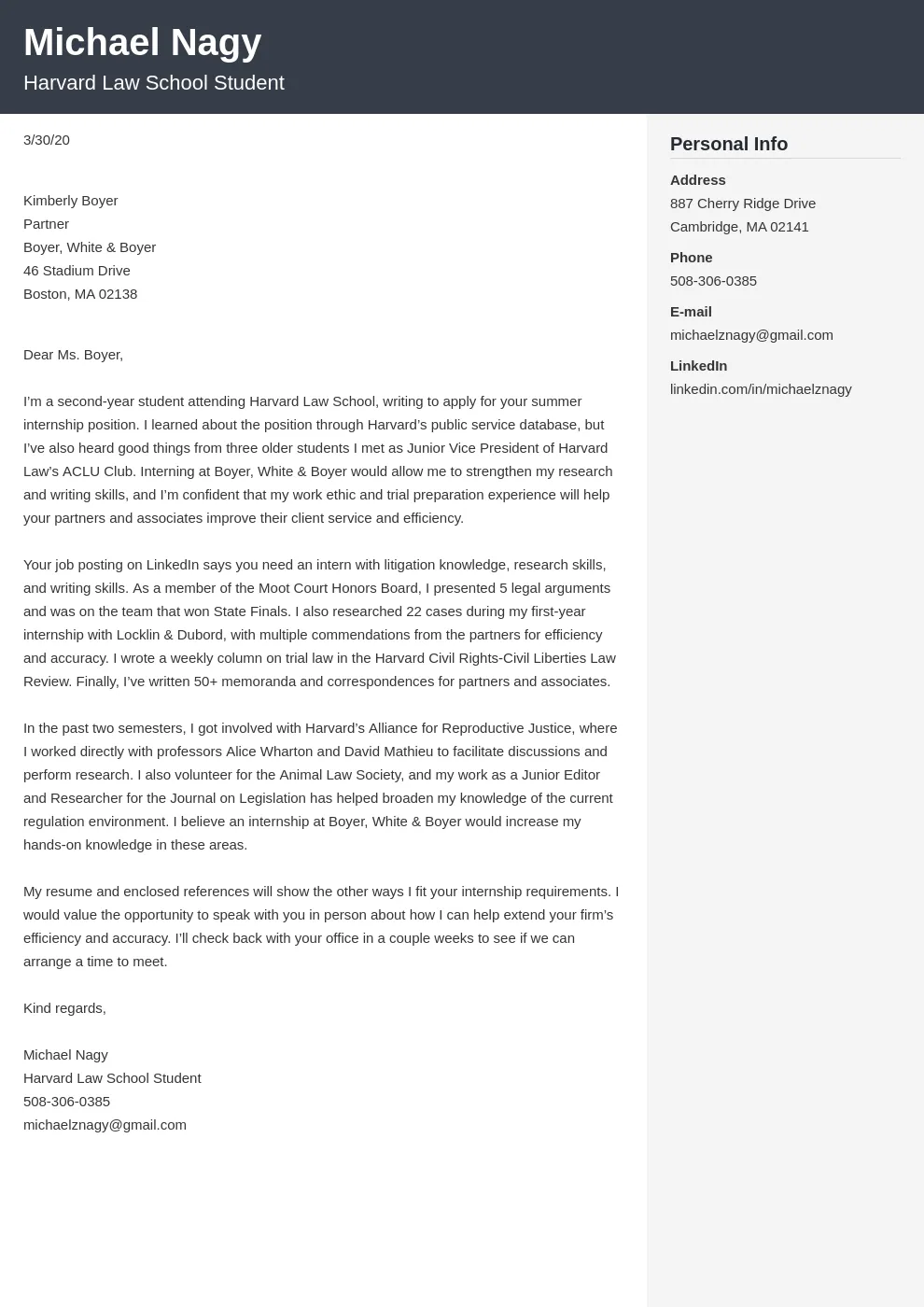
Proofreading and formatting are critical to ensure that your cover letter is professional and error-free. Before submitting your cover letter, thoroughly proofread it for any grammatical errors, spelling mistakes, and typos. Even minor errors can undermine your credibility and give the impression that you lack attention to detail. Use a spell-checker and grammar-checker tool, but don’t rely on them entirely. Proofread the document multiple times and, if possible, have a friend or colleague review it as well. Ensure your cover letter is formatted correctly and easy to read. Use a standard font, such as Times New Roman or Arial, with a readable font size. Maintain consistent spacing and margins throughout the document. A well-formatted, error-free cover letter reflects your professionalism and increases the likelihood of a positive response.
Common Mistakes to Avoid
There are several common mistakes that can significantly decrease your chances of getting noticed. Avoid generic cover letters that could be sent to any company. Ensure your cover letter is tailored to the specific job and company. Do not include irrelevant information or repeat your resume verbatim. Keep your cover letter concise and to the point. Avoid using jargon or overly complex language. Do not use slang or informal language. Proofread your cover letter carefully to catch any typos or grammatical errors. Avoid negative language or making critical statements about former employers or colleagues. Always be honest, and avoid embellishing your qualifications. Following these best practices will significantly improve the overall effectiveness of your cover letter.
Using Strong Verbs
The verbs you use in your cover letter can significantly influence its impact. Use strong, action-oriented verbs to describe your accomplishments and responsibilities. Strong verbs convey energy and make your qualifications more compelling. Avoid weak verbs like ‘helped’ or ‘assisted.’ Instead, use verbs such as ‘managed,’ ’led,’ ‘developed,’ ’negotiated,’ ‘achieved,’ ‘implemented,’ or ‘created.’ These verbs provide a clearer picture of your actions and their impact. Incorporating these kinds of verbs into your resume and cover letter can also help you to highlight your accomplishments. The use of strong verbs helps to portray you as a proactive and effective professional, making your application more impressive.
Maintaining a Professional Tone
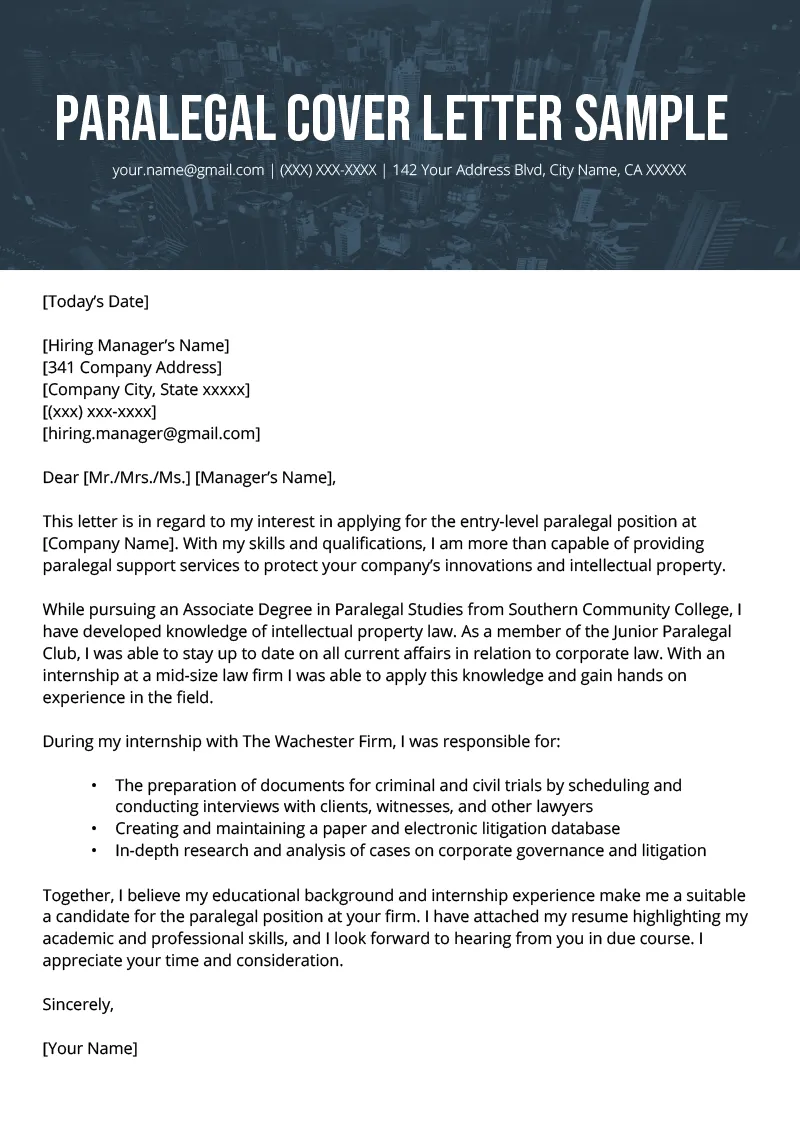
Maintaining a professional tone is crucial in your cover letter. Your writing style should be formal, respectful, and appropriate for a legal environment. Avoid using slang, contractions, or informal language. Use proper grammar and punctuation. Write in a clear and concise manner to make your message easy to understand. Even your word choice can impact your success when writing a cover letter. It’s important to avoid overly aggressive or presumptuous language. Your tone should reflect your respect for the hiring manager and the company. Always proofread your cover letter carefully, and make sure that your writing style aligns with the standards of professional communication in the legal field. A professional tone conveys your seriousness about the position and demonstrates your attention to detail.
Formatting for Readability
Formatting for readability enhances the clarity and overall impact of your cover letter. Use a clear, easy-to-read font, such as Times New Roman or Arial, with a font size between 11 and 12 points. Use consistent spacing and margins. Break up long paragraphs into shorter ones to avoid overwhelming the reader. Use bullet points to highlight your key accomplishments or skills. Keep your cover letter to one page. Make good use of white space to enhance readability. A well-formatted cover letter looks professional and makes it easier for the hiring manager to scan the document and quickly identify the relevant information. A well-formatted cover letter makes a positive first impression, ensuring that your message is well received.
